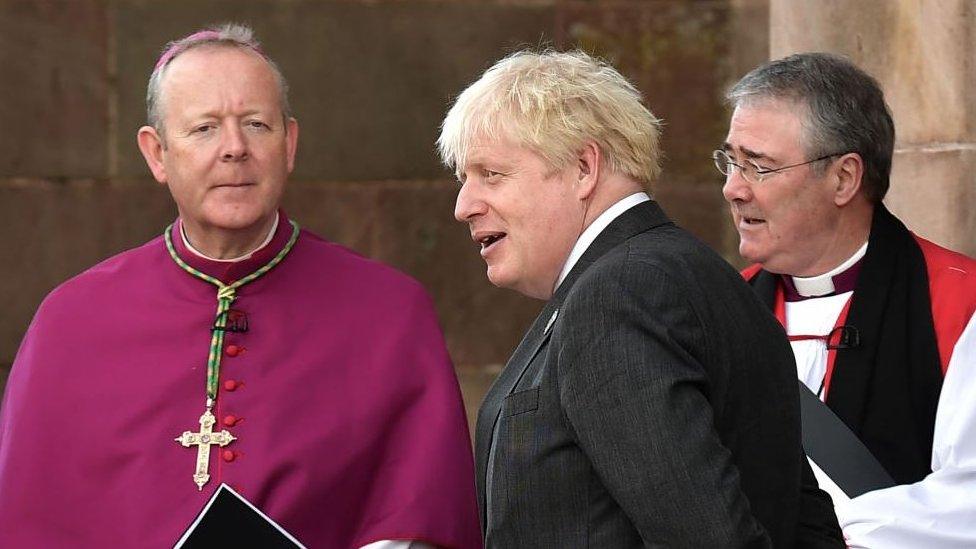NI 100: Year '21 presenters reflect on podcast's look at NI's creation
- Published
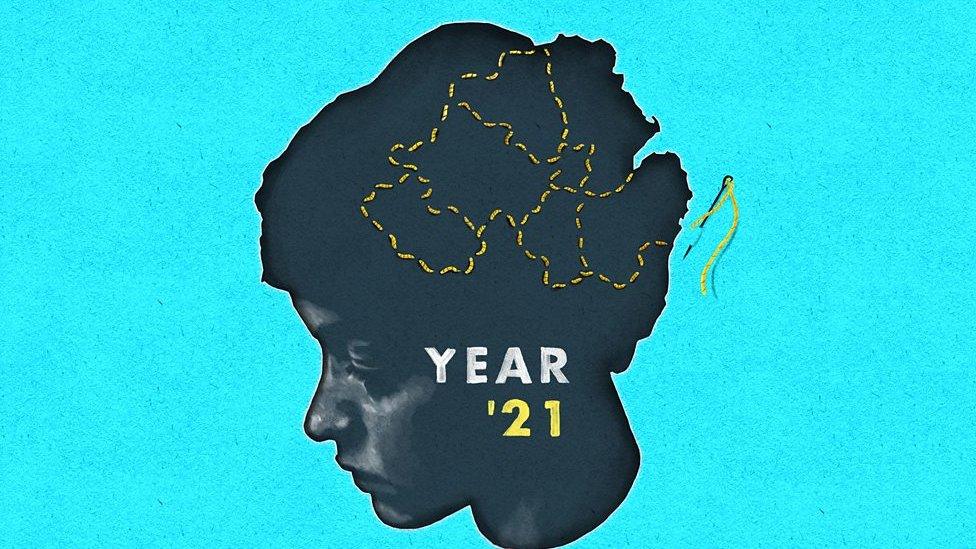
Don't shout at us - listen to the whole thing.
Those words summed up how we wanted people to approach our Year '21 podcast. The story of how Northern Ireland was created, told week by week.
Now, 12 months on, as we prepare our final episode, we're relieved that no-one shouted at us.
And that, in the end, we were able to examine the history of one of the bloodiest years of the 20th Century on this island in a reflective and thoughtful way.
That's not to say we shied away from controversy.
It would be impossible to relive every week of 1921 without making some people feel at least a little uncomfortable.
Sectarian killings, shipyard expulsions and political decisions that few could stand over today.
But that was the key to our podcast. We were not there to judge the actions of anyone 100 years ago. We were there to tell the story of how an island was split and how two new states were created.
What we did not predict was that, thanks to the listeners, we ended up bringing many of the characters of 1921 to life. And not just the big names.
We did episodes on Michael Collins, James Craig, Eamon DeValera and Edward Carson. We spoke to their relatives and found out things that weren't in most history books.
But we also told the story of Matthew McDonald, a Belfast pharmacist, put out of his home and business and forced to live on the other side of the world.
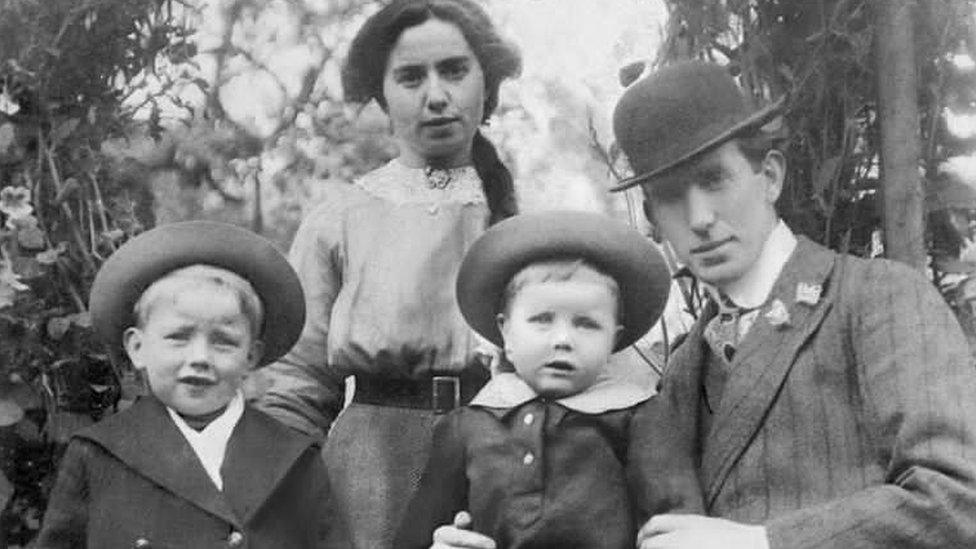
Matthew McDonald died in Australia after being forced out of his home and business
He was at the top of his game in 1921, but died in Australia a broken man. His great grandson, Ian McBurney, told us how the trauma he suffered had a positive affect in the end.
His children and grandchildren lived a different life in Australia. Their desire to tell his story was an attempt to lay the ghosts to rest. To return him home to Belfast.
Then there was Mary Keily's grandfather.
Patrick Keily was a Royal Irish Constabulary (RIC) man, part of the Regimental Guard protecting King George V when he visited Belfast in June 1921 and, as she told us, "six foot six in his stocking soles".
He had met the daughter of a Presbyterian minister and, as he was Catholic, kept the relationship and marriage secret until the birth of their first child.
Or did the marriage even happen? As Mary said: "Maybe they're not even married, I don't know."
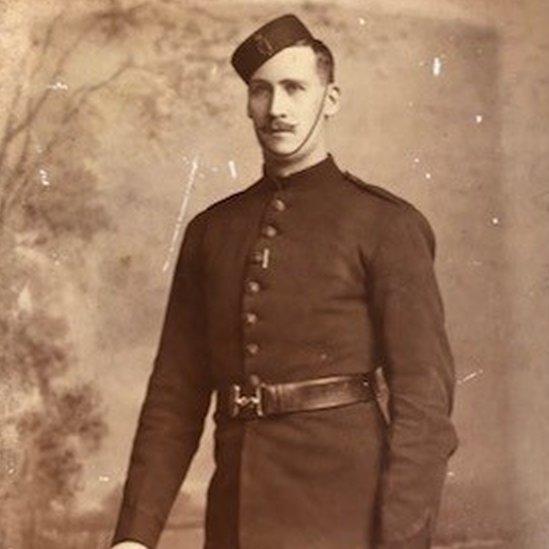
Patrick Keily kept his relationship with the daughter of a Presbyterian minister secret
A listener did know. They found the marriage record of Mary's grandparents and we were able to share it with her.
Identity has been a central theme. How the events of 1921 in Ireland shaped how we feel about this place today, whatever our perspective.
Stuart McLean, the County Donegal Orangeman, illustrated that perhaps more starkly than anyone else we interviewed.
He lives five miles from the border in Newtowncunningham.
"My family went to sleep under one flag and woke up under a different one the next morning," he told us.
He has lived his entire life in the Republic, but still identifies as British and as a unionist.
Dr Eamon Phoenix has been our guide, companion and chief storyteller this year, but episode 48 turned to a story about his own family -that of his grandfather Hugh Napier.
He'd fought in Gallipoli and returned disabled before being given a job in the Rope Works in Belfast. During 1921, he was forced out, chased and beaten by a mob.
He survived thanks to the bravery of a woman who heard the commotion and intervened, chasing the crowd away. But for her actions, Eamon Phoenix might not be here today.
We were very aware that the centenary year would be celebrated by some and resented by others. We welcomed and encouraged all perspectives.
It was driven by our curiosity about how we got to 2021, and how much those events have dictated what happened across 10 decades on these islands.
We asked for people to help us inform our discussion. We were overwhelmed and extremely appreciative to those that did.
We never expected the podcast to become a historical record in itself.
It has, and for that we're extremely grateful. Hopefully future generations will be too.
You can listen to all episodes of Year '21 via BBC Sounds.
Related topics
- Published21 December 2020
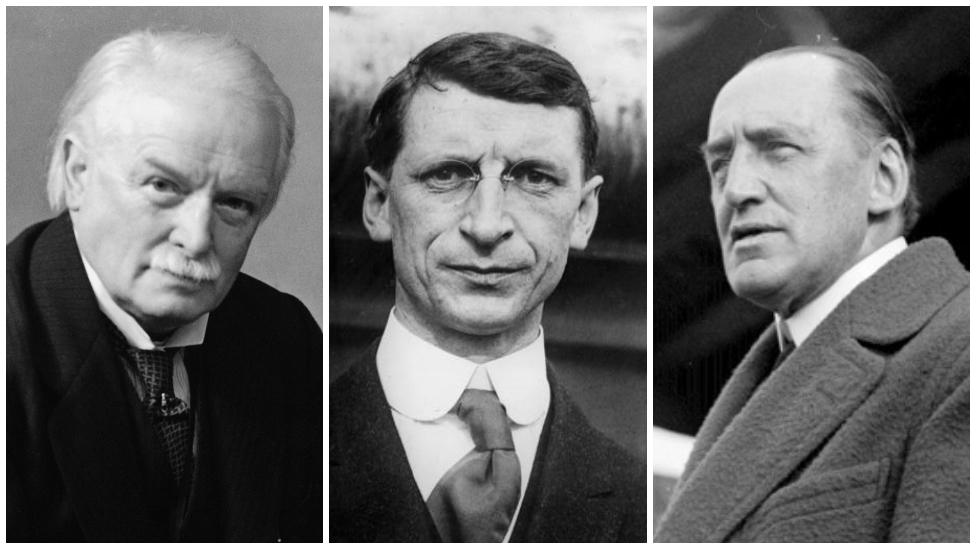
- Published23 June 2021
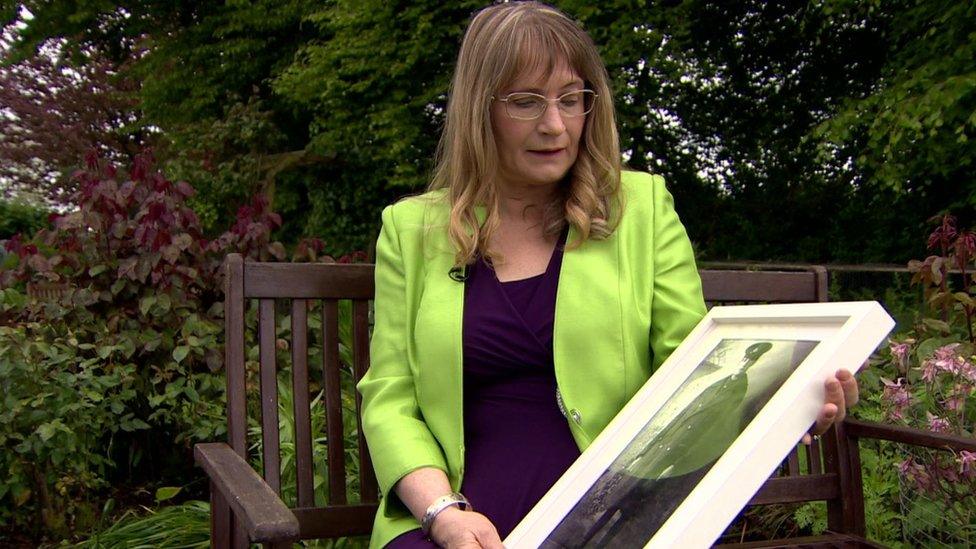
- Published21 October 2021
